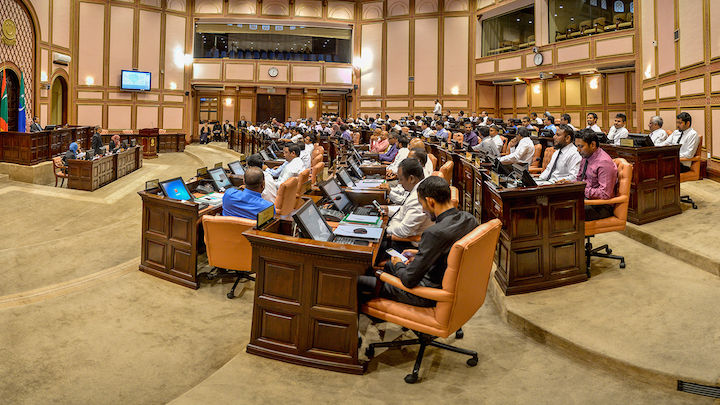Majlis resumes after recess
With no bills to debate on the agenda, Speaker Abdulla Maseeh Mohamed adjourned proceedings after announcing nominees sent by President Abdulla Yameen for parliamentary approval.

05 Jun 2017, 09:00
The People’s Majlis returned from a one-month recess and began its second session of the year with a 12-minute sitting on Monday.
With no bills to debate on the agenda, Speaker Abdulla Maseeh Mohamed adjourned proceedings after announcing nominees sent by President Abdulla Yameen for parliamentary approval.
The president nominated former MP Mohamed Nasheed as the Maldivian ambassador to Thailand. The former Maldivian Democratic Party lawmaker is now the leader of the Dhivehi Rayyithunge Party, a small party that backed the ruling coalition in last month’s municipal elections.
Deputy Gender Minister Mohamed Zahid was nominated to fill a vacancy on the Human Rights Commission of Maldives. Zahid was the commission’s vice president during its previous five-year term that ended in August 2015.
Become a member
Get full access to our archive and personalise your experience.
Already a member?
Discussion
No comments yet. Be the first to share your thoughts!
No comments yet. Be the first to join the conversation!
Join the Conversation
Sign in to share your thoughts under an alias and take part in the discussion. Independent journalism thrives on open, respectful debate — your voice matters.




